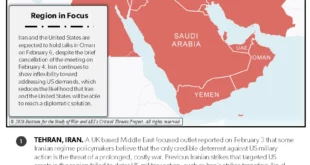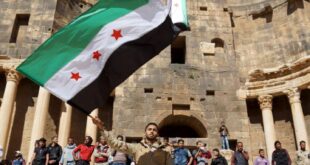IBL EL SAQI, Lebanon — During Israel’s 1982 invasion of Lebanon, a Norwegian UN peacekeeper at a junction checkpoint stepped forward and hailed approaching Israeli military vehicles. He was gunned down on the spot.
Nearly a quarter-century later, the United Nations troops deployed in southern Lebanon have again played the role of bystanders, and in some cases victims, of a conflict that has plunged the Middle East into crisis.
A day after the UN Security Council approved a cease-fire resolution that could help end the violence, some 2,000 peacekeepers, including battalions from India and Ghana, remained scattered in lightly defended posts across the battlefield for Israel and its archenemy, Hizbollah.
Four peacekeepers died in Khiam just south of here last month in an air strike that Israel said was intended to hit Hizbollah fighters. UN chief Kofi Annan said the attack appeared to be deliberate. At the hilltop headquarters of the Indian battalion near the village of Ibl El-Saqi, troops stayed in their barracks behind rolls of concertina wire on Saturday as artillery shells burst in flame and smoke in surrounding hills.
Khiam, where the four peacekeepers died, was visible in the distance, its contours and skyline reduced by heavy bombing. A mosque minaret still stood.
Some 250 members of UNIFIL, the United Nations Interim Force in Lebanon, have died since the force started operations in 1978. Many perished in car accidents and other incidents unrelated to combat. The four who died last month — a Canadian, an Austrian, a Finn and a Chinese — were members of another group of UN observers that deployed in 1949, soon after the creation of Israel.
The peacekeepers near Ibl el-Saqi venture out of their base, travelling in white armoured personnel carriers with large black “UN†letters on the sides. On Friday, they delivered a generator to an outlying post after notifying the Israelis of the route they planned to use.
On the same day, they prepared to escort Lebanese security forces out of the Israeli-occupied town of Marjayoun, but abandoned the project because an Israeli bombing run had blocked the road. The Lebanese forces and hundreds of civilian cars eventually made it out on their own, though the convoy was later hit by Israeli missiles far to the north. At least seven people were killed and dozens wounded.
Bombing has cut many roads in southern Lebanon, and the Indian battalion is conserving supplies of gasoline and food.
The resolution approved at the United Nations in New York would provide for 15,000 peacekeepers to assist the Lebanese army in monitoring the volatile border between Israel and Lebanon, an acknowledgement that the current UN force is not an effective deterrent.
UNIFIL issues a quarterly publication called Litani, named after the river that runs through southern Lebanon. In the January issue, the editor referred to the region’s “thin veneer of peace.†During times of relative calm, the UN forces monitor border incidents and conduct humanitarian work such as de-mining and medical treatment for villagers. They carry weapons in their vehicles when they travel, but have no police powers.
They also play host to visiting dignitaries, including Latin American ambassadors and Australian defence ministry officials, and organise games among their units such as “tugs of war.†The winning team gets a trophy.
In a small UN office just outside the gates of the Indian battalion headquarters, an old, dusty letter on a shelf reveals the depth of the generation-old conflict in the region, and the limits of what the UN force can do to help.
The writer of the 2002 note, presumably of Arab origin, says he worked in a restaurant in Israel but later moved to Lebanon on the expectation that his family would join him two weeks later. But paperwork held them up, he wrote, and the Lebanese Red Cross was unable to help.
In basic English full of misspellings, he appealed to the United Nations for help: “I hope that you can help me to return my wife and sun back to live together as family. And I will be thankful for your helping.†The outcome of the man’s case is a mystery, one of countless sad tales in the history of the Middle East conflict.
 Eurasia Press & News
Eurasia Press & News



